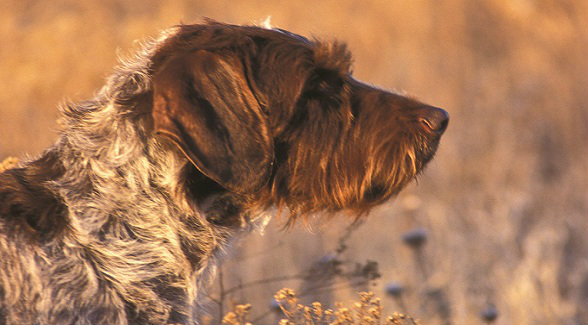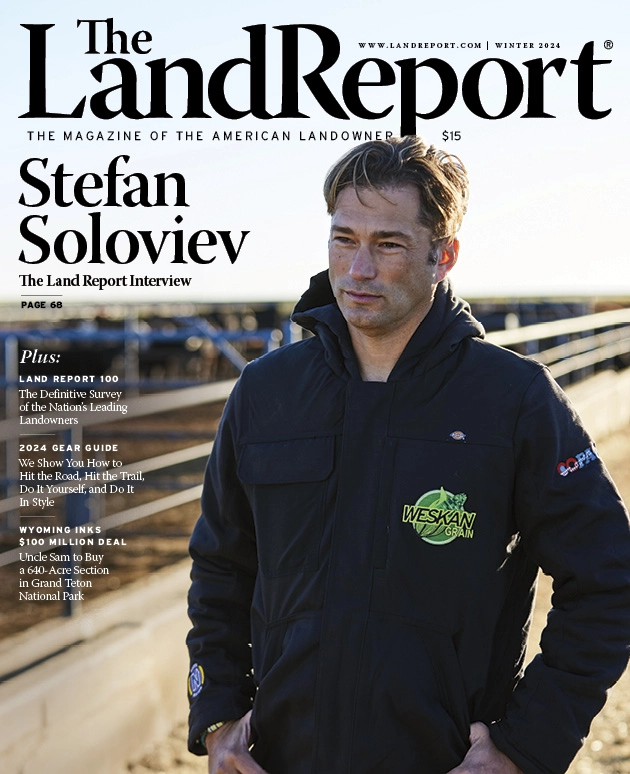Land’s Best Friend: German Wirehaired Pointer
Land’s Best Friend: German Wirehaired Pointer

Land’s Best Friend: German Wirehaired Pointer
If the German shorthaired pointer is the sports car of the dock-tail pointing breeds, then consider the German wirehaired pointer a muddy ranch pickup. This breed makes up with personality and practicality what it lacks in beauty and pointing style. Wirehair owners take pride in their scruffy, workaday dogs. Some owners, with more than a trace of affection, call them butt-ugly.
Known as the drahthaar in the Fatherland, the German wirehair was developed about 120 years ago by crossing pudelpointers with griffons, stichelhaars, Polish water dogs, early German shorthairs, and other versatile breeds.
The modern German wirehair’s dense undercoat and wiry, weather-resistant outer coat provide excellent protection against the elements and probably give it an edge over the German shorthair in cold water.
Most wirehairs hunt at a more modest range and pace than the best shorthairs, making them ideal in tough terrain or heavy cover. Well-bred pups are natural retrievers. Anyone who hunts ducks along sloughs and creeks, woodcock in thickets, and occasionally ventures further afield for doves and quail should take a look at the wirehair.
Do:
- Train your German wirehair with a firm, even hand. Wirehairs can be strong-willed and respond best to straightforward training.
- Take your pup afield as soon as she has completed a course of inoculations.
- Make your wirehair a member of the family.
Don’t:
- Expect your German wirehair to retrieve under harsh, icy conditions best left to a Chesapeake Bay retriever.
- Introduce gunfire before your pup has developed a strong interest in game birds.
Click here to download the digital version of The Land Report’s Fall 2012 edition today.




